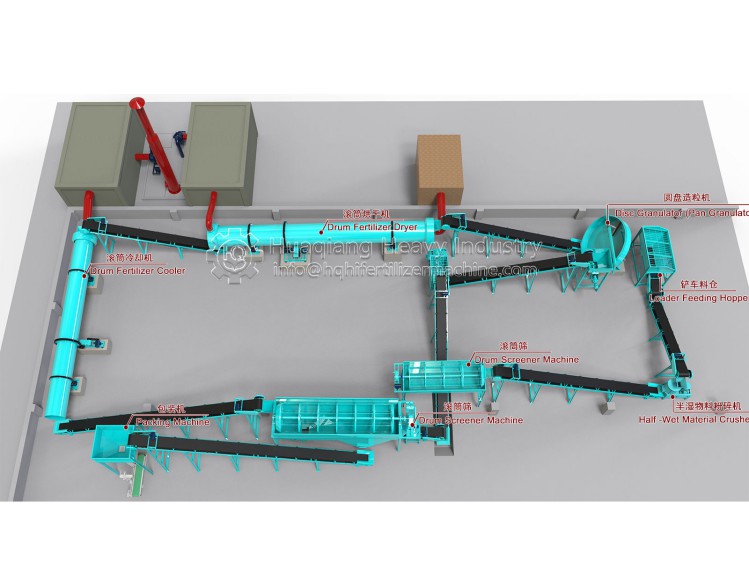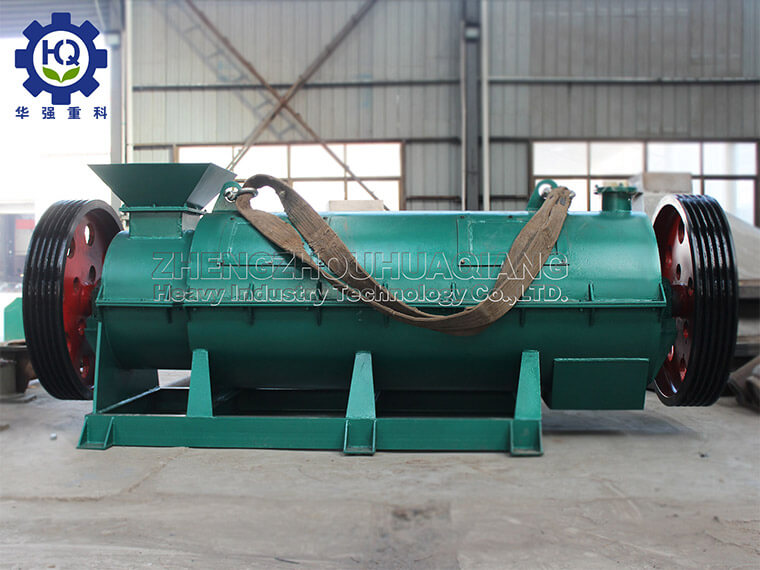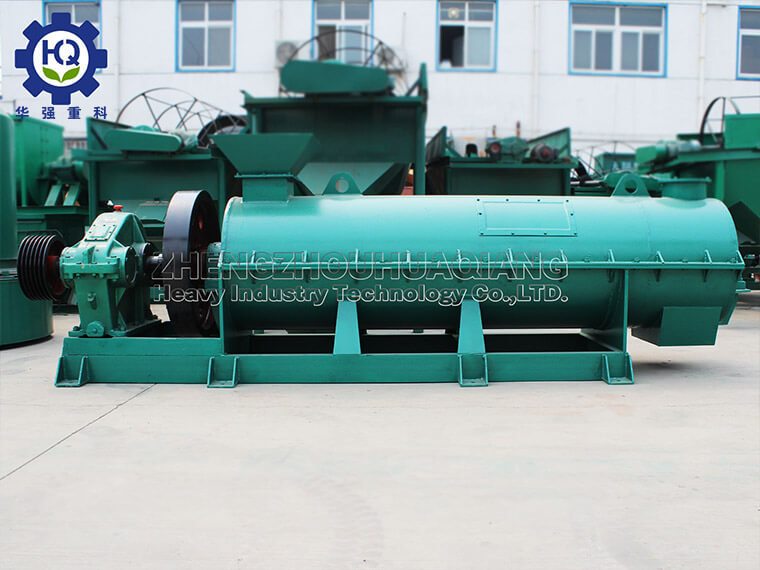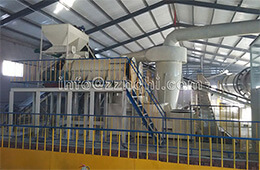The flat die extrusion granulator is mainly used for grain processing in (biological) organic fertilizer and aquaculture processing industries. The surface of the granular material processed by this machine is smooth and clean, and the hardness is moderate. The temperature rise is low during the processing, and the nutritional components in the raw material can be well maintained. Due to the low water content of particles, it is easy to store, and greatly improves the utilization rate of materials.
Process characteristics of flat die extrusion granulator:
The flat mold granulator uses a universal joint, the differential is connected with the motor, and when it works, the mixed powder materials are added into the hopper without heating and drying. After extrusion, the processed particles have smooth surface, and the internal ripening and penetration. The materials are squeezed to the bottom by the grinding wheel, and then cut off by the scraper, which has the characteristics of no return, high particle strength, and low moisture.
Working principle of flat die extrusion granulator
The flat die extrusion granulator drives the belt and pulley by the motor and transmits them to the driving shaft through the reducer, and synchronizes with the driven shaft through the split gear and works in opposite directions. The material is added from the feed hopper, extruded by the roller, demoulded and pelletized, and then conveyed to the crushing screen studio through a pair of chains. After screening and separating the finished particles (balls), the returned material is mixed with the new material, and then pelletized. With the continuous rotation of the motor and the continuous entry of materials, batch production can be realized.
The project has the advantages of low investment, short equipment flow, small land occupation, fast feeding, flexible installation, simple operation, low energy consumption, high power efficiency and high output. The low-temperature extrusion particle process below 60 ℃ is adopted: the molding rate of one-time extrusion granulation is more than 90%, no return material and no screening. As long as the water content of the raw material formula is appropriate, there is generally no need for drying equipment. (If the extruded particle finished product needs accelerated natural cooling, a cooler can be added) can be metered and packaged. The particle compressive strength is greater than 8 newtons.
The equipment is compact in structure and stable in quality, and can work continuously for 24 hours. The thread gap adjustment device is adopted for the flat die and roller, which can reduce the excessive wear of the flat die and roller. Compared with the traditional gasket method, the service life of the flat die and roller is prolonged.
Working principle: when the equipment is running, the material is squeezed to the bottom, then cut off by the scraper, and then entered into the secondary combination polishing, and rolled into a ball. The organic fertilizer flat die extrusion granulator has the advantages of high balling rate, no return material, high particle strength, uniform roundness, low balling moisture, and low drying energy consumption. Its purpose and characteristics are as follows:
1. The machine is mainly used for particle processing in organic fertilizer and aquaculture processing industries;
2. The surface of the granular material processed by this machine is smooth and clean, and the hardness is moderate. During the processing, the temperature rise is low, and the nutrients in the raw material can be well maintained.








